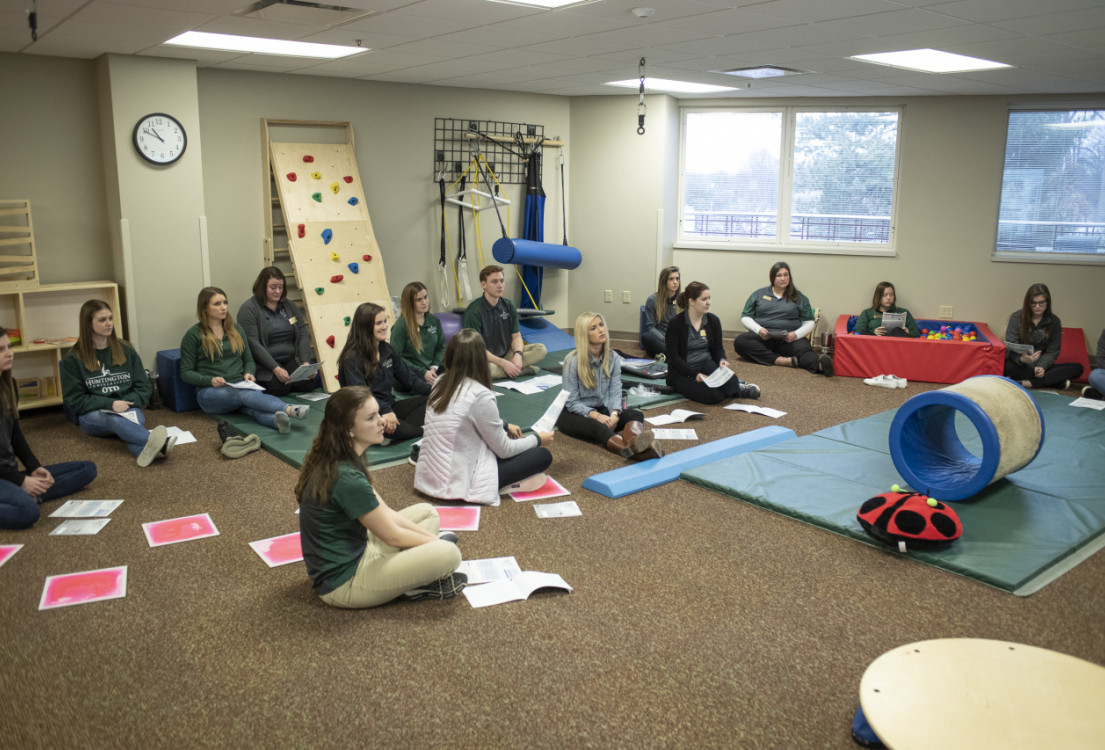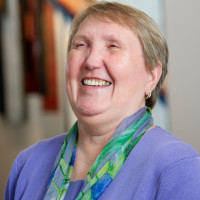Returning Home to Lay the Groundwork for a Dementia Friendly Community
Recently, an occupational therapy doctoral student lived her dream to return to her home community and give back to those who provided her with support. Her goal was to lay the foundation for an inclusive community for individuals with dementia and their caregivers. Abigail Saxman Muhlenkamp worked for fourteen weeks to successfully complete educational requirements for her doctoral capstone.
Two years prior to implementing her plan, Abigail began designing and building a capstone project. During this time, she worked closely with community stakeholders and occupational therapy (OT) faculty mentors to ensure a successful and meaningful experience for the community and herself. One of those stakeholders was Dementia Friendly Indiana, who served as her expert mentor throughout the planning and experiential phase of the project.
According to Dementia Friendly America, one of the initial steps for developing a dementia friendly community is to identify community champions. Individuals, groups, institutions, and service organizations who recognize the needs of those with dementia and their caregivers are examples of champions. All too often, individuals with dementia and their caregivers tend to stay home and decrease engagement in community activities. This is in part due to the progressive loss in cognition that makes social participation more difficult. The ever-increasing complexity of our world also limits freedom of movement due to lack of familiarity with new spaces and changes to old spaces. Dementia friendly communities embrace individuals and facilitate their ability to interact and engage with others.
Abigail returned to Portland, Indiana, where she enlisted the help of community champions. She hosted a series of community workshops at the Jay County Library, Kiwanis Club, Community Center, Health Department, and Jay Randolph Development Services Center on developing spaces that would facilitate social interaction and inclusion for individuals with dementia. To ensure future sustainability, she developed a sporting event targeting youth, adolescents, and young adults that included an educational component on dementia. Abigail plans to practice and remain in Jay County.
The Accreditation Council for Occupational Therapy Education (ACOTE) requires OT students trained at the doctoral level to first design a project and then complete a capstone experience. These experiences are unique to each student. The process for most students begins with a dream: Students research what is most meaningful to them and then reach out to leaders on the topic. A needs assessment and a plan is conceptualized. At this point, the dream becomes real with the doctoral capstone.
From an educational standpoint, Abigail’s doctoral capstone was a huge success. She was able to further the knowledge she acquired as a student in our Doctoral Program in Occupational Therapy and then successfully give back to her home community.
To learn more about Huntington University’s Doctoral Program in Occupational Therapy, visit huntington.edu/OTD.

